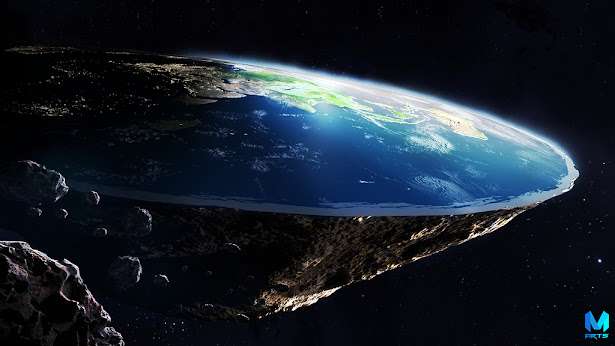
Flat Earther Spends $20,000 Trying To Prove Earth Is Flat And Accidentally Proves It’s Round
In a twist of irony that has left many scratching their heads, a self-proclaimed flat-earther recently made headlines after spending a significant sum of money in an attempt to prove that the Earth is flat—only to inadvertently provide evidence that it is, in fact, round. The story of this curious endeavor serves as a cautionary tale about the importance of critical thinking and scientific inquiry in the face of conspiracy theories and pseudoscience.
The flat-earther in question, whose identity has not been disclosed, reportedly invested over $20,000 in equipment and resources to conduct experiments aimed at debunking the widely accepted notion that the Earth is a sphere. Armed with high-tech cameras, drones, and other specialized gear, the individual set out to capture evidence that would confirm their belief in a flat Earth.
However, as the experiments unfolded and the data began to accumulate, the flat-earther found themselves confronted with a surprising realization: the evidence overwhelmingly supported the round Earth model. Images and measurements obtained from the experiments consistently showed curvature consistent with a spherical planet, contradicting the flat Earth hypothesis.
In a statement following the conclusion of the experiments, the flat-earther admitted defeat, acknowledging that their efforts had unintentionally reinforced the scientific consensus on the shape of the Earth. The individual expressed disappointment at the outcome but also expressed gratitude for the opportunity to engage in empirical investigation and challenge their preconceived beliefs.
The story of the flat-earther’s failed experiment highlights the dangers of embracing fringe beliefs without subjecting them to rigorous scrutiny and skepticism. In an age of widespread misinformation and conspiracy theories propagated through social media and online echo chambers, it is all too easy for individuals to fall prey to pseudoscience and irrational thinking.
Moreover, the episode underscores the importance of scientific literacy and critical thinking skills in discerning fact from fiction. In a world where misinformation abounds, it is imperative that individuals approach extraordinary claims with skepticism and demand evidence that withstands rigorous scrutiny.
Despite the setback, the flat-earther’s journey serves as a reminder that science is a self-correcting process driven by evidence and inquiry. While it may be tempting to dismiss fringe beliefs outright, engaging with them through empirical investigation and rational discourse can ultimately lead to a deeper understanding of the natural world.
As the flat-earther’s story fades from the headlines, its lessons endure as a testament to the power of reason and the importance of maintaining an open mind in the pursuit of truth. In a world where the boundaries between fact and fiction are increasingly blurred, let us remember the value of skepticism, curiosity, and the pursuit of knowledge.
